Hardly anyone goes past the first page of Google results, so you want your ads to show up on the first page, right? That’s why Google prominently displays the minimum first page bid in the AdWords interface, right?
Wrong.
One of the things we do here at Two Octobers is to audit PPC accounts to point out any major problems or opportunities. An issue I often run across is that keyword bids are all over the place. It would be one thing if these bids were set based on return on investment (ROI), but they’re not. A PPC manager has set bids based on the minimum first page bid that Google reports. Here’s why this is a bad idea:
Google (and Bing) sponsored search ads are sold on an auction-for-position basis. On the whole, traffic goes up the higher you bid, whether you move from position 12 to 10 or 2 to 1. To get the best results, it makes sense to inch bids up or down evenly until you’ve hit your budget target or other constraint. As an example, let’s imagine a campaign with three keywords (A, B and C) and a daily budget cap of $50. When you launch the campaign, you set keyword bids at $1.

This results in a total cost of $18 and 18 clicks. You notice that keyword A is not meeting the minimum first page bid, while B and C are. Since you are well below your budget cap, you increase the bid for keyword A to $2 to get on the first page.

Now you are spending exactly your budget of $50 and you’ve gone from 18 to 33 clicks. But what if instead you adjusted all bids equally, from $1 to $1.40?

Now you are spending a total of $49 for 35 clicks. Your ad for Keyword A is still not on page one, but voilá you are getting better results!
These numbers are made up, but the underlying principles are accurate. I’ve simplified things a bit since my goal is to show the fallacy of bidding to be on page one. In fact when I am creating a campaign I do usually vary bids based on my best guess as to conversion rate and average sale. For example, if I’m working on a campaign for a vacation rental in Breckenridge, I will bid the keyword “vacation rental breckenridge” higher than “rental breckenridge”, since the latter could refer to an apartment or rental equipment. I expect that more visits from “vacation rental breckenridge” will result in sales so those clicks are worth more. As I collect analytics data I further refine bids based on ROI.
And some of you out there may point out that traffic volume in relation to bid is a non-linear function (and not always a monotonic increasing function either), and that it can therefore make sense to have uneven bids even lacking ROI data. That is true, but it takes a whole lot of data and math to understand the relationship between bid price and traffic for any given keyword, and it is still not a good idea to set max CPC based on minimum first page bid.
If you would like us to have a look at your paid search campaigns, please give us a shout.




